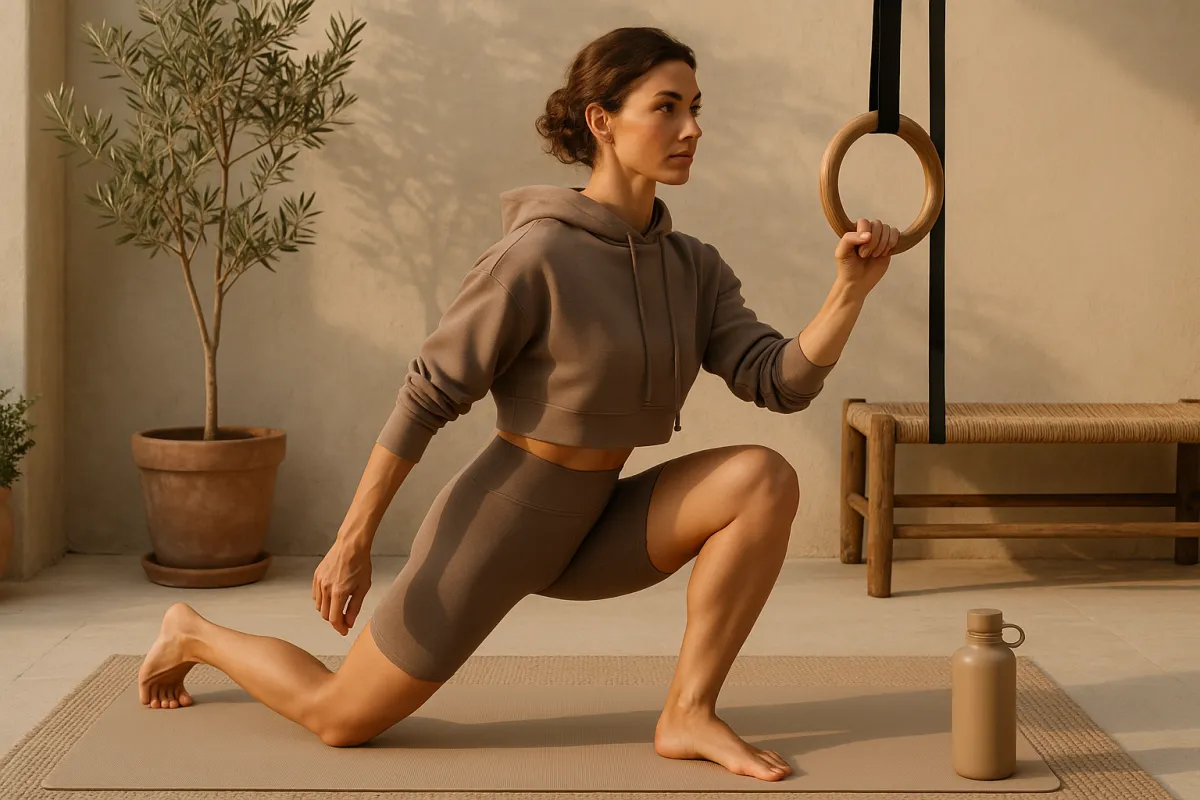
Why You Should Focus on Longevity — Not Short-Term Fitness Goals
Why You Should Focus on Longevity — Not Short-Term Fitness Goals

Let’s be honest: the “before-and-after” mindset is exhausting.
We’ve all seen the headlines promising results in 7 days, 30-day abs, or “how to get toned fast.” But here’s the thing no one tells you: your body isn’t a 4-week project. It’s your home for life. And when you train like you’re in it for the long haul, everything shifts.
Instead of chasing fast results, we start building strength that lasts.
Instead of burnout, we build resilience.
Instead of obsessing over aesthetics, we reclaim the joy of movement.
Welcome to the era of fitness for longevity — and yes, it looks a lot like Pilates, calisthenics, and getting strong on a yoga mat.
🔥 The Problem with Quick-Fix Fitness
Let’s break it down.
Short-term fitness culture teaches us to:
Train harder, faster, and longer
Ignore fatigue, soreness, or hormonal cues
Value visible progress over how we feel
Treat movement like punishment for food
But studies show this approach actually raises cortisol, increases injury risk, and leads to inconsistent motivation. It burns bright — then burns you out.
Plus? It often doesn’t stick. 80% of people who follow restrictive or high-intensity programs end up quitting within three months. Why? Because short-term fitness isn’t designed to be lived in.
💪 Enter: Functional Fitness for Real Life
Longevity fitness is rooted in movement that supports your body as it evolves — through your 20s, 30s, 40s, 50s and beyond. It’s less about how fast you can shrink something and more about how strong, mobile, and mentally clear you feel doing life.
What does that look like?
✅ Pilates that builds deep core stability, joint health, and balance.
✅ Calisthenics-inspired mat training that builds real strength using just your body weight.
✅ Body-led movement that adapts to energy, stress, cycle, and season.
This isn’t “slow” fitness. This is smart fitness. Grounded. Fluid. Sustainable.
And guess what? You still build strength, lean muscle, and endurance. But now it comes with joint support, better posture, and a nervous system that actually feels safe.
📖 Related reading: Why strength training is the most empowering thing women can do
🧬 Long-Term Benefits of Functional Training
According to research from Harvard Medical School, consistent functional movement training:
Increases lifespan and reduces fall risk
Improves cognitive clarity and memory
Supports metabolic health and mobility
Strengthens emotional resilience and sleep
And here’s the part that hits different — it translates to real life. Whether it’s lifting groceries, running after kids, walking confidently into your 50s, or bouncing back from a stressful week — this kind of training supports you. All of you.
🌿 The Energy Shift You Didn’t Know You Needed
When you let go of timelines and tune into your body, something beautiful happens:
Movement becomes meditative
Strength feels layered, not forced
You stop fighting your body and start collaborating with it
And that’s when things stick. Because when your fitness practice supports your life — not the other way around — it becomes part of who you are.
✨ Want to explore what long-term movement could look like for you? Check out our Full Body Essentials Bundle — it’s everything we believe in, in one flow-based format.
🚫 This Isn't About Giving Up Intensity
Let’s be clear — intensity isn’t the enemy. It just needs to be cycled, integrated, and sustainable.
Functional training doesn’t mean you won’t get sore. It means you’re strong enough to recover, and smart enough to know when to push.
So whether you’re flowing on your mat, doing bodyweight intervals, or slowing down for mindful mobility, the real goal is the same:
To feel good in your body — not just for a few weeks, but for the long run.
